Gaza
In a camp in Deir al-Balah, central Gaza Strip, adults and children rush to secure a meagre portion of food.
Since October 7, the U.N. Food and Agriculture Organization and others have documented the destruction of the territory’s food system, including farmland and fishing.
“Life here is very difficult. We suffered in all aspects, from providing nylon, tents, water, and food. Today we get food from charity, which some days are not good. But were grateful to God our situation is better than others."
"Water is available for an hour and is cut off for an hour. A whole year of suffering, The suffering that only God knows about.”
In a war that has left many cashless, food donations are a lifeline.
Read also: Gaza faces cash crisis as main banks halt operations
However, Israel allows trucks of aid just through three crossings, including two small ones in the north of the enclave and one in the south, Kerem Shalom.
UN experts said in July that "famine had spread from northern Gaza to reach central and southern Gaza".
According to Palestinian news agency Wafa, the Israeli operation in the territory has killed 41,431 Palestinians and wounded 95,818 others.
Months of cease-fire talks have failed to find common ground between the warring sides.
Accusation of “starvation campaign”
The U.N. independent investigator on the right to food accused Israel of carrying out a “starvation campaign” against Palestinians during the war in Gaza, an allegation that Israel vehemently denies.
In a report circulated on September 4, investigator Michael Fakhri said he found that it began two days after Hamas’ surprise attack in southern Israel that killed some 1,200 people, when Israel’s military offensive in response blocked all food, water, fuel and other supplies into Gaza.
Israeli Prime Minister Benjamin Netanyahu said accusations of Israel limiting humanitarian aid were “outrageously false.”
Earlier this year, the International Court of Justice ordered Israel to ensure "unhindered" food aid into Gaza.
READ ALSO: Egyptian, German presidents talk Gaza war, bilateral cooperation
Following intense international pressure Netanyahu’s government gradually has opened several border crossings for tightly controlled deliveries. Fakhri said limited aid initially went mostly to southern and central Gaza, not to the north where Israel had ordered Palestinians to go.
“By December, Palestinians in Gaza made up 80% of the people in the world experiencing famine or catastrophic hunger,” Fakhri said. “Never in post-war history had a population been made to go hungry so quickly and so completely as was the case for the 2.3 million Palestinians living in Gaza.”
The University professor claims it goes back to 1948 and Israel's continuous dislocation of Palestinians. Since then, he accused Israel of deploying “the full range of techniques of hunger and starvation against the Palestinians, perfecting the degree of control, suffering and death that it can cause through food systems.”




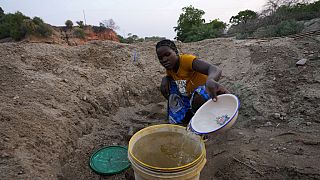
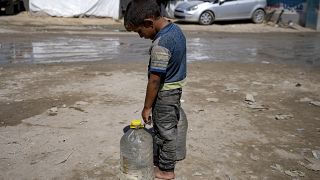
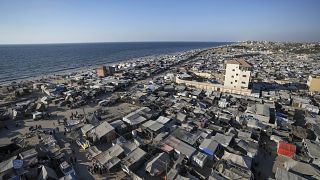
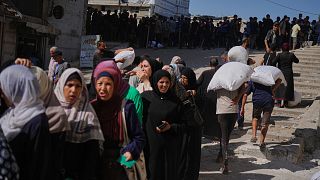
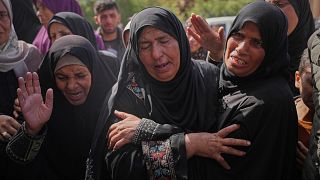
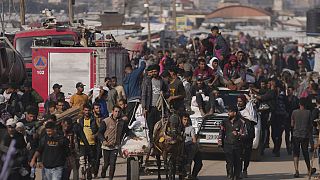



01:30
Foreign Ministers of Oman and Egypt urge Washington and Tehran to resume negotiations
01:04
Israeli airstrike on popular Gaza City beach café kills at least 30
01:30
Trump calls for a Gaza ceasefire deal as some Palestinians are skeptical
01:03
Iran’s judiciary says at least 71 killed in Israel’s attack on Tehran prison
01:15
Egypt condemns Israeli 'aggression' against Iran, backs ceasefire
00:58
Iran: Hundreds of thousands mourn top military figures, civilians killed by Israel